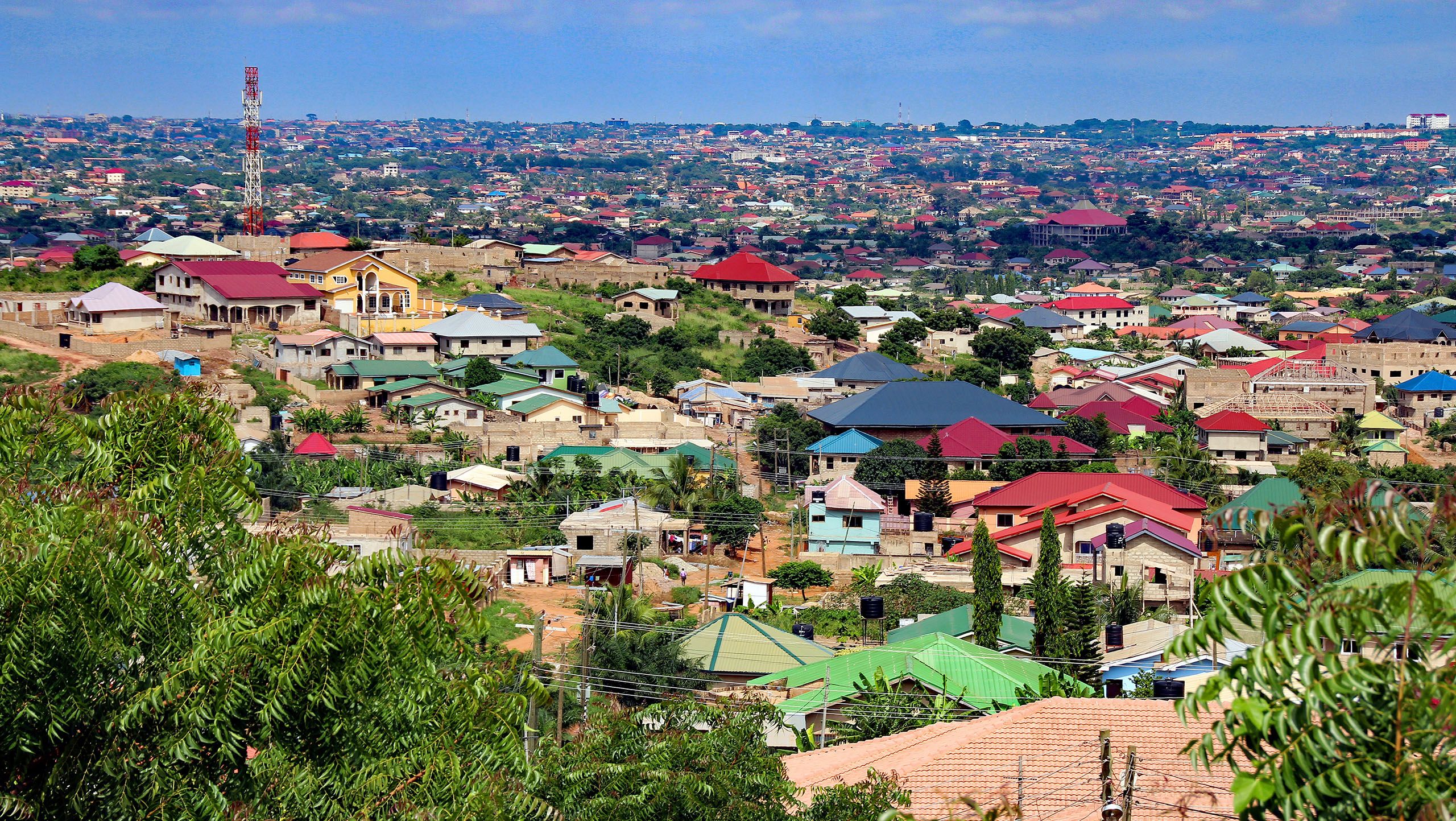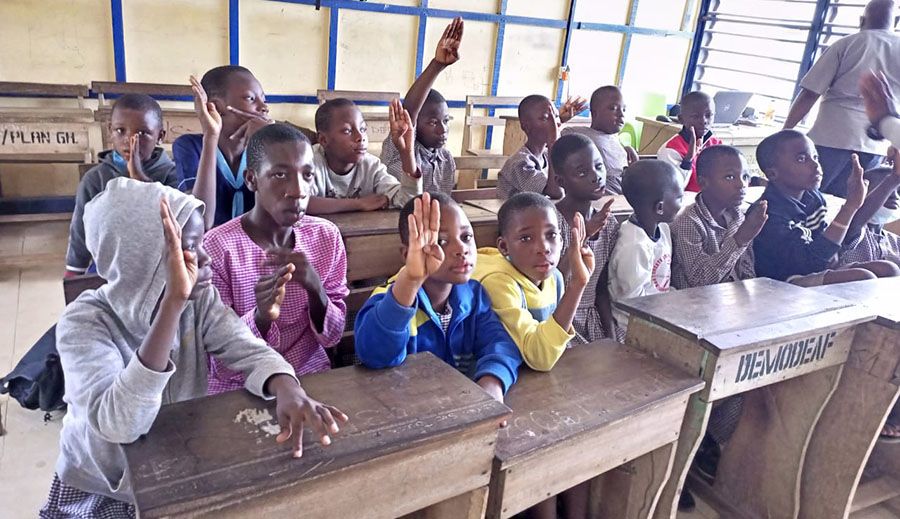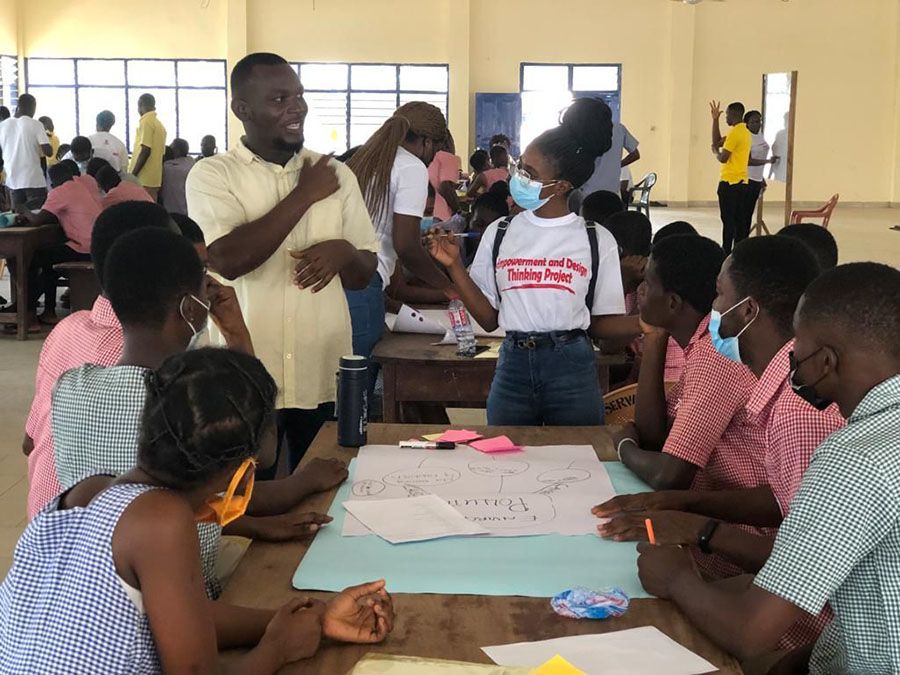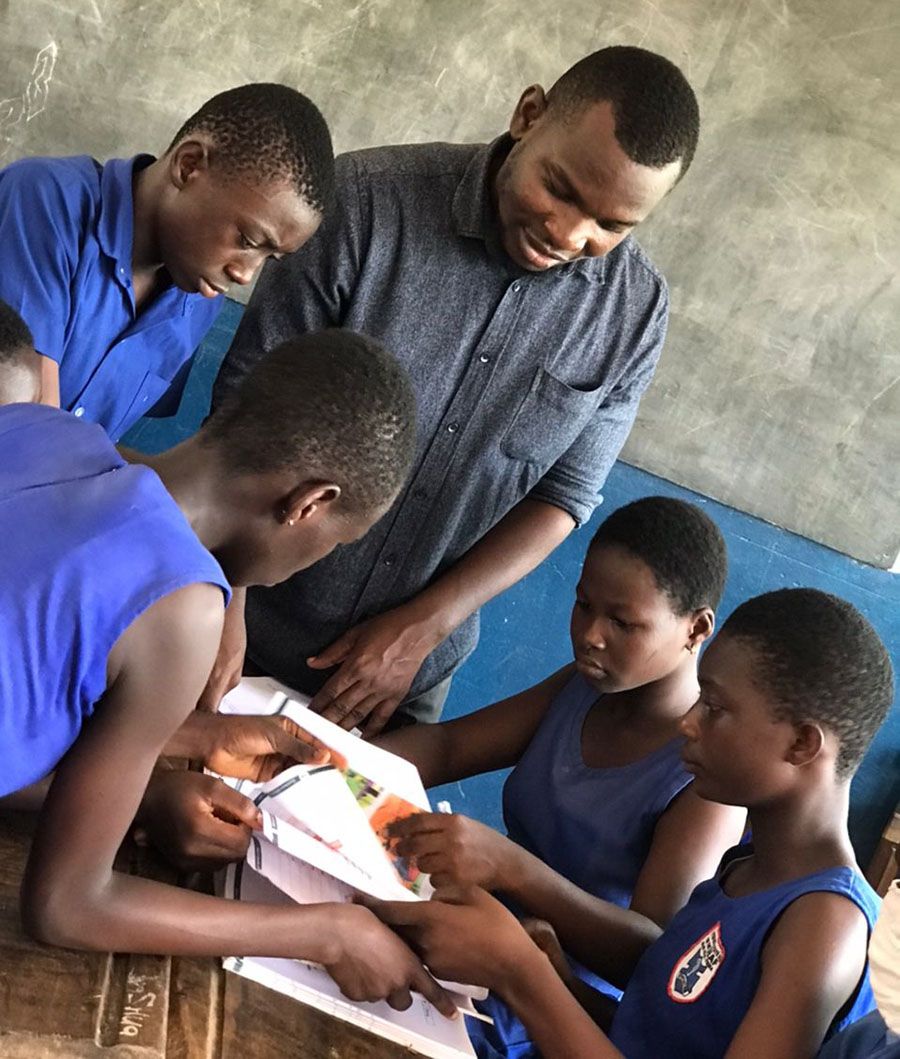Supporting young deaf children and their
caregivers in Ghana

With the vast majority of deaf children in Ghana being born into families where there is no history of deafness, support and communication can be a serious challenge.
Since 2020, Professor Ruth Swanwick (School of Education) and post-doctoral researcher Dr Daniel Fobi (School of Education) have been working together to develop educational resources and research capacity in Ghana for deaf children and their caregivers.
Transforming the lives of families in the region

When Daniel completed his PhD looking at the role of sign language interpreting in the inclusion of deaf students in the classrooms, his supervisor, Ruth, suggested collaborating on a two-year project between the UK and Ghana funded by the British Academy under the Global Challenges Research Fund for early Childhood Education.
This time, instead of being in supervisor and postgraduate researcher roles, the pair would be working as partners, building something from the ground up with the potential to transform the lives of families of deaf children in the region.
In this context, when there’s no family history of deafness, parents often don’t know how to communicate with their children.
“In Ghana over 90% of deaf children are born into families where there is no history or experience of deafness,” Daniel explains. “In this context, when there’s no family history of deafness, parents don’t often know how to communicate with their children. This is compounded by the lack of an established infrastructure in terms of health or education that provides support and intervention during the early years, so very little in terms of support.”
Deaf children repeating sign language concepts taught by their teachers
Deaf children repeating sign language concepts taught by their teachers
As well as building a new knowledge base around the early support of supporting families and practitioners, a further aim of the project was to develop deaf education professional and research capacity in the region.
Historically, research into the early development and support of deaf children has been dominated by the Western literature. “Half the world’s population is missing from the research,” says Ruth, whose background is in deaf education and the language development of deaf children. “One of our aims was to begin to build that capacity.”
Putting the team together
Through Daniel’s professional links in Ghana the project established connections with Dr Alexander Mills Oppong and Dr Yaw Nyadu Offei at the Department of Special Education, University of Education in Winneba, Ghana. From there, they began to build a team including early career research assistants Joyce Fobi, Faustina Frempomaa and Obed Appau.
As the project grew the team were able to promote the involvement of deaf adults. The team worked with Richie Doku and Linda Gibbah – both leaders in the deaf community – and deaf academic Derrick Asomanig. They also worked closely with the Ghana National Association for the Deaf (GNAD).
“When deaf adults get involved with the education of children, it motivates those children. And when parents and caregivers see that those adults have been successful, it inspires them.” Daniel says.
Teacher of deaf children interpreting for deaf students in a workshop
Teacher of deaf children interpreting for deaf students in a workshop
Balancing two very different systems
Working with a large team across geographical and cultural divides, particularly during a pandemic, required excellent organisational and communication skills.
Ruth and Daniel met online every week to go through activities and plan together, and once their research team grew confident, they were able to split them into groups to concentrate on writing, data collection and analysis.
It hasn’t been easy, says Ruth: “There are different expectations and experiences of research culture. How your research is expected to take place in the institution, the budget it’s given, the status it’s given. Every week Dani had to remind me not to take this for granted.”
We never gave up on each other, we have to pull each other along as a team, with our different expertise and different energies.
Daniel said coordinating the team has been a challenge, but a rewarding one: “Working on the same projects becomes quite problematic when the two systems are very different. But we have been very successful in navigating our way and supporting and understanding each other. We never gave up on each other, we have to pull each other along as a team, with our different expertise and different energies. I’ve found that my writing skills, my networking skills, and my communication skills have all improved.”
For Ruth, Daniel’s contribution has been essential. “I could not have done this project without him. He’s now in a position to be the lead on other projects. He’s ready to start writing applications and mentoring other people.”
This progression has been felt throughout the team, she says: “You can see the change in research confidence, culture and expectation. Every single person on the project team is now involved in a publication. We’ve got a book contract, so we’re going to be writing a book. Everyone is really keen to develop the work. And they can develop it perfectly well without me.”
Teacher of deaf children teaching from a textbook
Teacher of deaf children teaching from a textbook
About Ruth
Professor Ruth Swanwick is a Professor in Deaf Education in the School of Education, where she leads deaf education research and teaches on the MA in Deaf Education/Teacher of the Deaf programme.
She researches childhood deafness, language, and learning, inclusive and bilingual education, and teacher development. Her particular area of specialism is deaf children’s multilingual communication and language learning, and the development of pedagogies and practitioner understanding.
In 2015, she was awarded a British Academy Mid-Career Fellowship to develop a plurilingual language framework for deaf education. Other recent projects have focused on the linguistic and cultural experiences of deaf children of Roma families in the UK, and the daily life interactions between deaf and hearing people.
About Daniel
Daniel Fobi is a lecturer in deaf education and inclusive education. Dani's research interests are in early education for deaf children, inclusion for special needs individuals in various contexts, and sign language interpreting.
He is currently working to support scholarships in sub-Saharan Africa and building the academic capacity of researchers of the region by providing mentorship and developing research capacity.


